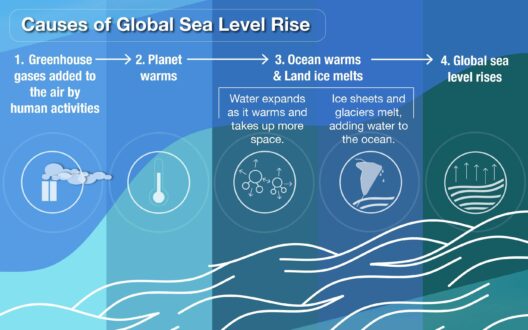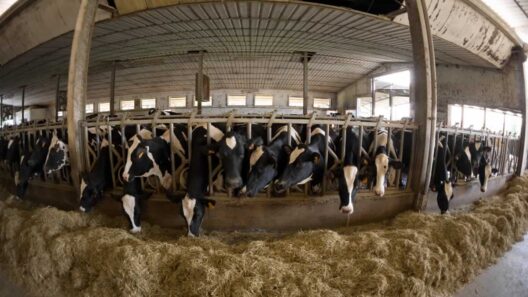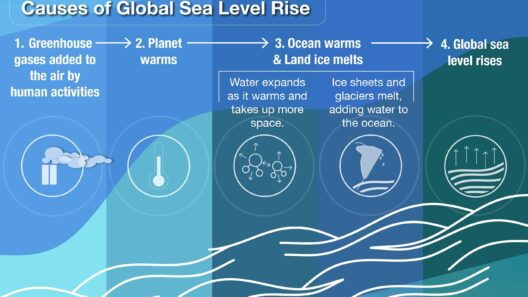The specter of climate change looms larger than ever over contemporary discourse, presenting a crucible of challenges that extend well beyond traditional economic paradigms. The complexities of a warming planet intertwine with socio-political realities, rendering a multidimensional investigation essential. The implications of climate change are not merely ecological—they catalyze far-reaching transformations in social structures, political power dynamics, and global governance.
First and foremost, the environmental alterations wrought by climate change sporadically disrupt ecosystems, causing biodiversity loss and habitat destruction. These phenomena directly affect human populations, particularly marginalized communities that depend on natural resources for their livelihood. The socio-political ramifications become acutely evident in regions where climate-induced displacement leads to heightened competition for dwindling resources. Such competition invariably fuels societal tensions as individuals and communities vie for survival, often escalating into conflicts that hinge on access to vital resources.
One cannot discuss the implications of climate change without considering the profound economic disparity it exacerbates. The Global South, disproportionately afflicted by climate impacts, often finds itself at the receiving end of nature’s wrath. Wealthy nations have historically contributed the most to greenhouse gas emissions, yet it is the less affluent countries that grapple with the consequences. Climate justice movements advocate for recognition of this inequity, emphasizing the moral obligation of affluent nations to assist vulnerable populations in adapting to climate variability. This raises pertinent questions about reparations, accountability, and shared responsibility in addressing the climate crisis.
The societal fabric is also structurally altered in response to climate change. Social cohesion may fray as communities confront the precariousness of their environments. Those who once dwelled harmoniously in ecologically rich areas are now grappling with instability induced by extreme weather events. Layers of disenfranchisement become evident: access to clean water, arable land, and stable shelter are compromised, leading to significant public health crises. The ramifications of such instability extend to governmental pressures, ultimately challenging the functionality of state apparatuses. Should governments fail to address these pressing needs, social unrest could amplify, leading to widespread discontent that threatens political stability.
Beyond local contexts, global geopolitics is intricately entangled with climate change. Issues such as climate refugeeism require international cooperation and robust frameworks for human rights protections. As migration patterns shift in response to ecological devastation, states must grapple with the implications of large-scale displacement, which can strain national resources and provoke xenophobic sentiment. Therefore, a globalized approach to governance is imperative—one that transcends national interests in favor of collective action to mitigate climate impacts. Enhanced collaboration among nations is vital in addressing the challenges posed by transboundary pollution, conservation, and sustainable development.
At the heart of this dialogue lies the critical role of policy-making. Effective climate policies are crucial to navigating the socio-political realities of a warming planet. Policymakers must be equipped with comprehensive data and an understanding of both scientific and socio-political contexts. The integration of community voices into policy frameworks is essential to ensure that solutions address the unique challenges faced by various populations. Public engagement enhances accountability and ensures that the voices of those most affected by climate change inform decision-making processes.
The intersection of climate change and public health is another area of concern. Rising temperatures correlate with increased incidences of heat-related illnesses, respiratory issues due to poor air quality, and the spread of vector-borne diseases. Vulnerable populations, particularly the elderly and those with pre-existing health conditions, bear the brunt of these health risks. To address these issues, a multi-faceted approach is necessary—one that considers healthcare access, education, and preventive measures as integral components of a comprehensive public health strategy in the face of climate change.
Furthermore, the discourse surrounding innovation and technology plays an indispensable role in framing socio-political realities. The advent of renewable energy sources, sustainable agricultural practices, and green technologies promises potential solutions to mitigate climate impacts. However, transitional challenges arise, particularly in regions reliant on fossil fuels for economic stability. A just transition that prioritizes the upskilling of the workforce and fosters economic diversification is crucial to alleviate the socio-political dislocation that accompanies shifts in the energy landscape.
Importantly, educational initiatives are central to fostering an informed citizenry capable of engaging in the socio-political dimensions of climate change. By cultivating a populace educated in environmental issues, societies can galvanize grassroots movements and encourage advocacy for robust climate action. Pivotal knowledge about climate science, environmental justice, and sustainability should permeate curricula at all levels of education, empowering future generations to navigate the complexities of a warming world.
In conclusion, the socio-political realities of a warming planet encapsulate a spectrum of interconnected issues that extend beyond mere economic considerations. The interplay of environmental changes, social upheavals, and political ramifications underscores the necessity for a holistic and inclusive approach to climate action. As this paradigm unfolds, the imperative for collaboration, innovation, and education becomes increasingly pronounced. Responding effectively to these challenges will require foresight, adaptability, and an unwavering commitment to justice, resilience, and sustainability.








